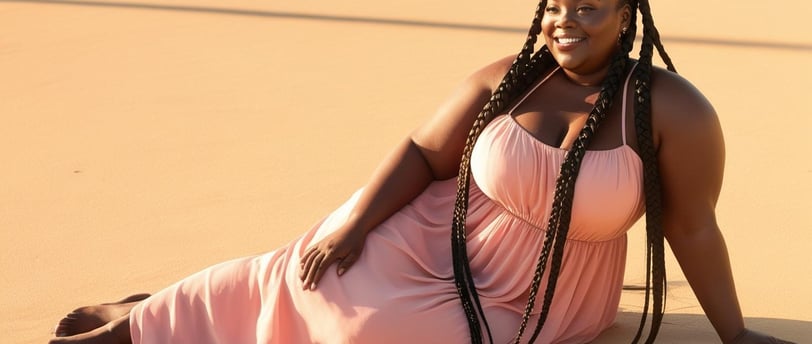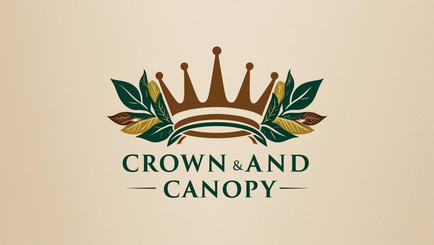Where It Starts: A Series on Childhood, Memory, and Healing
CW: Childhood trauma, emotional neglect, death of loved ones, narcissistic abuse. This blog post contains deeply personal reflections on my early life, grief, and CPTSD. Please read with care and tend to your emotional well-being as needed. You are not alone.
THE CANOPY
4/16/20253 min read


There are some stories I’ve never told — not out loud, not even in my journal.
Not because they’re not there. But because they live in a part of my body that’s locked up tight.
When you live with Complex PTSD (CPTSD), your childhood becomes something you remember in flashes. A smell. A sound. A sudden wave of fear you can’t explain. One minute, you’re scrolling through your phone. The next, you’re 8 years old again, in a room that doesn’t feel safe — and your nervous system doesn’t know the difference between then and now.
That’s what CPTSD does — it fragments memory.
It stores trauma in the body like a filing cabinet that only opens when it feels like it.
And sometimes when it does open, it hurts like hell.
But I’m ready to start opening those drawers — slowly, carefully, and in my own time.
This blog post is the beginning of a new series I’m writing:
A personal excavation of my childhood memories as they rise to the surface.
Not for sympathy. Not for shame.
But for clarity.
For closure.
For little me — who deserves to be seen, and heard, and loved in her truth.
Where I Come From
I grew up on the northeast side of San Antonio, Texas, in the same house from the time I was 1 year old until I was kicked out during my junior year of high school. That house held my entire childhood — the laughter, the confusion, the hiding places, the heartbreak.
On my father’s side, I was wrapped in the kind of love that felt steady. My grandmother — a librarian in her younger years — was gentle and wise, always surrounded by books and warmth. My grandfather was a retired Master Sergeant in the United States Air Force, disciplined but kind, the backbone of our Sunday dinners.
Some of my fondest memories are from those Sunday gatherings at Grandma and Grandpa Graves’ house. Holidays were a thing of beauty — orchestrated by my grandmother through a symphony of mailed catalogs, careful planning, and deep love. It’s a tradition I still ache for.
My father was a plumber by trade — hands always working, heart always open. We were close. Close in a way that made the world feel okay, even when it wasn’t.
On my mother’s side, things felt different. My maternal grandmother was a powerhouse — a woman who worked her entire life to support her five children after losing her husband in his 40s. I admire her strength deeply. My mother had three sisters: Ruth (who we lovingly called Ruthie), Donna, and Adelle. Big personalities. Big opinions. Big silences too.
My mother worked as a Budget Analyst for the United States Army, a civil servant with a serious face and high expectations. She was also, I now understand, a narcissist. Not the buzzword — the clinical, deeply impactful kind. And being her daughter, especially after the divorce, was complicated in ways I’m still unraveling.
My Mother, My Mirror, My Wound
When my parents divorced, my already strained relationship with my mother broke wide open. The bond I had with my father — warm, present, comforting — became a quiet threat to her. The resentment wasn’t always spoken, but it was loud. I felt it in the way she pulled away. In the cold silences. In the small punishments that made no sense.
Clinically speaking, children of narcissistic parents often develop:
Chronic feelings of unworthiness
Emotional neglect masked as love
Fawn responses (people-pleasing to stay safe)
Identity confusion and fear of abandonment
([Ref: Dr. Karyl McBride, Will I Ever Be Good Enough?])
I lived all of it. And then some.
My abandonment wounds didn’t just come from one place. They came from all sides — death, neglect, emotional absence, and outright cruelty.
I will go deeper into these moments in later posts, but here’s what I want to name today:
Before I turned 16, I lost:
My grandfather
My paternal grandmother
My Aunt Sharon
My Uncle David
And my father
One by one, I watched the safe people disappear — until there was only one left: my lifelong abuser. My mother.
It wasn’t just physical loss. It was the emotional erosion of being unloved by the one person I needed most — and having no choice but to survive in that silence.
Writing to Remember, Writing to Heal
I don’t know how many posts this series will take.
I just know I need to write them.
Because memory isn’t always linear.
Because trauma doesn’t care about timelines.
Because healing isn’t a straight line — it’s a spiral.
I’m giving myself full permission to write this as it comes up, not how it’s expected.
Some posts will be heavy. Others might be soft.
But all of them will be honest.
If you’ve experienced narcissistic abuse, CPTSD, or abandonment wounds — I see you.
You’re not broken. You’re not dramatic.
You’re surviving something that was never your fault.
This is me choosing to remember, without shame.
This is me choosing to heal, without a deadline.
This is for the little girl who learned to be quiet so she wouldn’t be punished —
and for the grown woman who’s learning how to speak again.
We start here.
— Shakara
